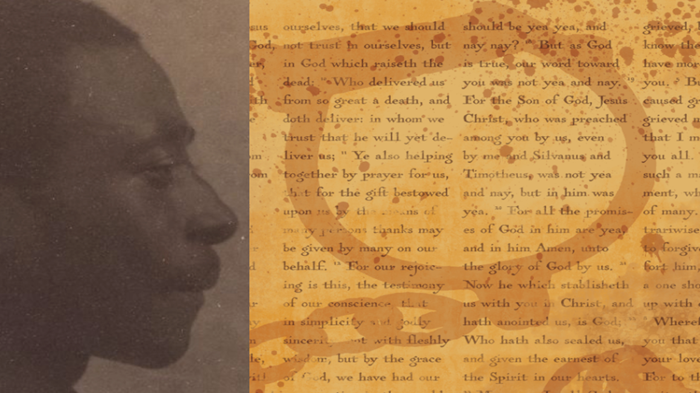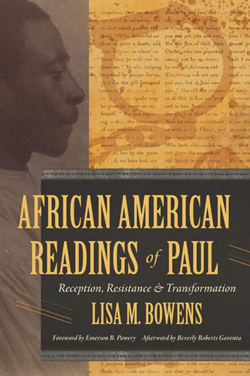Like Another Phoebe

Preachers need stories. They get their stories from their memory’s databank. The databank comes then from personal stories and from books the preachers have read. We know, too, that most preachers don’t tell stories about women because they are not in their databank. The same is true of African Americans – except for the databanks of (mosty) African American preachers.
So, what to do? I suggest buying and reading the stories of African Americans, many of whom were enslaved, in Lisa Bowens wonderful new book, African American Readings of Paul. Wow, this is such a good, good book.
I will tell the story of Zilpha Elaw (1790? – ????), who illustrates the tenacity of knowing God in Christ as a calling and who over and over used the apostle Paul’s words to narrate her experience and calling. Elaw was absorbed by the scriptures.
Lisa Bowens breaks Elaw’s story into eight parts, each of which is short, accessible, and full of quotations from Elaw’s own words. And each illustrates her abundant use of the apostle Paul, and her example builds Bowen’s own construction of an African American reading of Paul.
It would be too much here to detail even an example from each so I will sample this wonderful section in her book.
Autobiography: Elaw’s cover verse is 2 Corinthians 3:5 (about our sufficiency in Christ), and in Elaw’s autobiography there are more than 100 citations of Paul. Her calling is expressed in terms of Eph 4:1 and 1 Tim 6:10 and Eph 2:20.
Conversion … I’ll quote from Lisa Bowens’ quotation:
One evening, whilst singing one of the songs of Zion, I distinctly saw the Lord Jesus approach rne with open arms, and a most divine and heavenly smile upon his countenance. As he advanced towards me, I felt that his very looks spoke, and said, “’Ihy prayer is accepted, I own thy name.” From that day to the present I have never entertained a doubt of the manifestation of his love to my soul.
Paul’s description of the Holy Spirit as the spirit of adoption enables Elaw to describe her new identity and to own this new identity as completely hers. Elaw is part of the divine family, for she is God’s child, Jesus’s friend, and with the Holy Spirit's guidance she gains access to divine realms that surpass worldly existence.
Camp Meeting Experience: Elaw in 1817 had a mystical lengthy experience in God’s presence and sensed she was “like another Phoebe.” This experience gave her “a public voice and public recognition” and so she became a “disruptive figure” as a black woman mediating God in her world.

Call and Opposition: her own calling came at another camp meeting, she resisted it, but then was open to it again and got another vision, and all this was narrated by Elaw in Pauline terms. Her experience of preaching the first time was attended with tears from others as others recognized the presence of the Spirit upon her. She experienced – no surprise here – opposition from friends, from her husband, and from others. She continued preaching and narrated what she was doing in Pauline terms.
Miracles: A healing occurred through her.
NT texts against women preaching: yes, of course, she encountered these in her Bible and on the mouths of others, but she explained these texts in their context and not as rules for all time for all churches because the Bible itself shows the Spirit calling and speaking through women (WDWD? What did women do in the Bible?)
Spiritual warfare themes are apparent in her writings and speech, and these two are narrated in Pauline terms.
Resistance of Racism: Again, Elaw preaches a gospel for all on the basis of at times Pauline texts and opposed the “pride of white skin.”
Bowens concludes by appealing to Chanta Haywood’s observation that Elaw wrote herself into existence by writing he own story but Bowens adds to this: she did this by using Pauline language!
Folks buy this book to fill your databank with African American stories!
Jesus Creed is a part of CT's
Blog Forum. Support the work of CT.
Subscribe and get one year free.
The views of the blogger do not necessarily reflect those of Christianity Today.


















